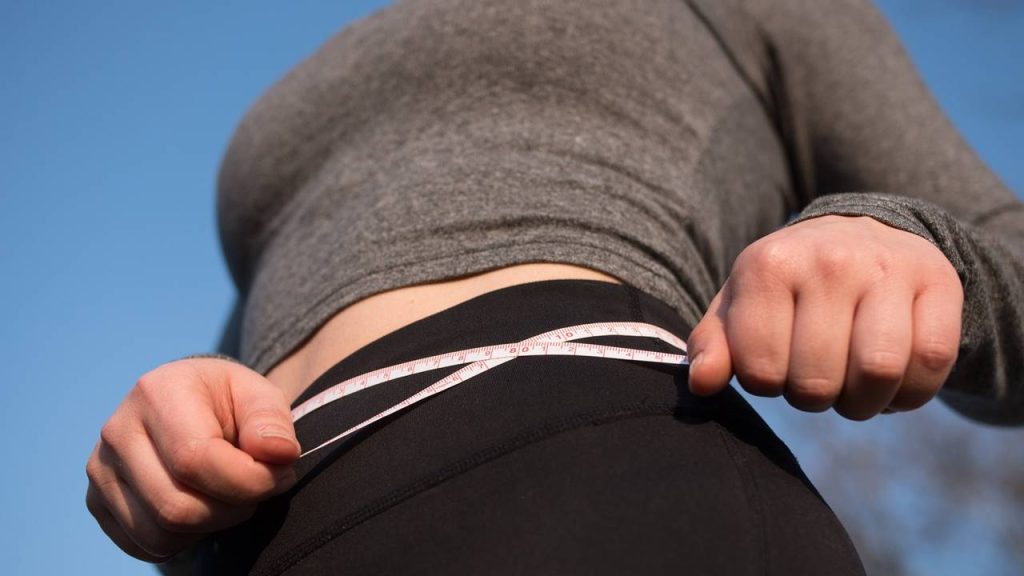French researchers discover that a common bacterium in the environment produces a feeling of satiety and helps with weight loss. But more research is needed.

Administering a probiotic, the bacterium Hafnia alvei, triggers the production of a molecule called Club that mimics an appetite-suppressing hormone (alpha-MSH), which can help overweight people shed pounds.
Dr. Pierre Dolcelatte and colleagues at the University Hospital of Rouen in France advised 212 overweight people on how to reduce their calorie intake by one-fifth over three months. Participants were asked to maintain their usual level of physical activity.
During the three months, about half of the participants also took a probiotic pill containing the gut bacteria Hafnia alvei, twice a day. The other participants received a placebo.
HAFNIA ALVEI BACTERIA REDUCE APPETITE
The research team reported at the Targeting Microbiota 2022 conference (Paris, France), that 55% of people who took the probiotic lost at least 3% of their weight, compared to 41% of those who took the placebo.
Participants who took the probiotic reported a lower appetite during the experiment, compared to those in the placebo group.
Weight loss in this category has been linked to a reduced risk of type 2 diabetes and cardiovascular disease in overweight people.
It’s unknown how food intake might have been different between the two groups, but the study authors believe H. alvei bacteria may have induced a feeling of fullness that caused these participants to eat less.
Researchers also can’t rule out that the bacteria affected the way fat is broken down, which would be even more interesting. Previous studies with mice suggest that possibility.
It is also not known whether the bacteria acts differently in each person based on genetics, gut microbiome characteristics or metabolism.
WHERE IS THE BACTERIUM HAFNIA ALVEI FOUND?
Hafnia alvei was described in 1954. It is widely distributed in nature, so that both soil and water can be found, in animals and in the human intestinal microbiota.
It has been found in dairy products, vacuum-packed meats, goat, beef and pork. On fewer occasions it has also been isolated in pulques (a traditional Mexican drink), in traditional dishes such as achene from India or kimchi from Korea. It has not been isolated as much in vegetables, although it has been found in some cases.
In the human body the bacterium Hafnia alvei can behave like an opportunistic pathogen and cause infections. However, controlled administration is being studied if its therapeutic properties in relation to obesity are confirmed.
The first studies were carried out with laboratory animals with the HA4597 strain, which managed to reduce weight and improve body composition and metabolic values of sugar and fats.
For now, there is no probiotic on the market with this bacterium. Further research is needed to determine its mode of action and safety.
LOSE WEIGHT WITH A DIET BENEFICIAL TO THE MICROBIOTA
What is known is that a balanced intestinal microbiota favors the maintenance of an adequate weight. Dr. Raphael Kell man, author of the book The Microbiome Diet states that if you increase the intake of healthy microorganisms, you lose weight. In addition, the growth of bacteria that are not beneficial must be avoided.
A diet with excess processed foods, refined carbohydrates and added sugars unbalances the microbiota. On the other hand, a plant-based diet based on natural, whole (whole) foods favors the increase of healthy bacteria. Vegetables, fruits, legumes, and whole grains provide prebiotic fiber that feeds beneficial bacteria.
Foods rich in a type of prebiotic fiber called inulin are especially recommended: asparagus, chicory root, garlic, artichoke and onions.
Fermented foods that provide beneficial live bacteria, such as yogurt, kefir, kombucha, miso, sauerkraut or unpasteurized kimchi, are also advisable.
In addition to following a diet good for the microbiota, to lose weight, food has to provide fewer calories than we usually eat, but it should not be so restrictive that it cannot be maintained over time. On the other hand, physical exercise and good sleep help improve energy metabolism.






